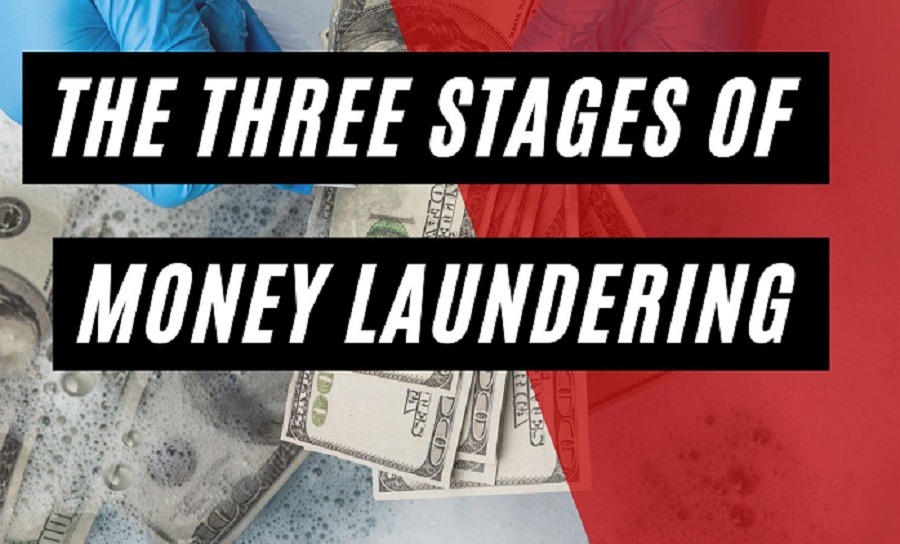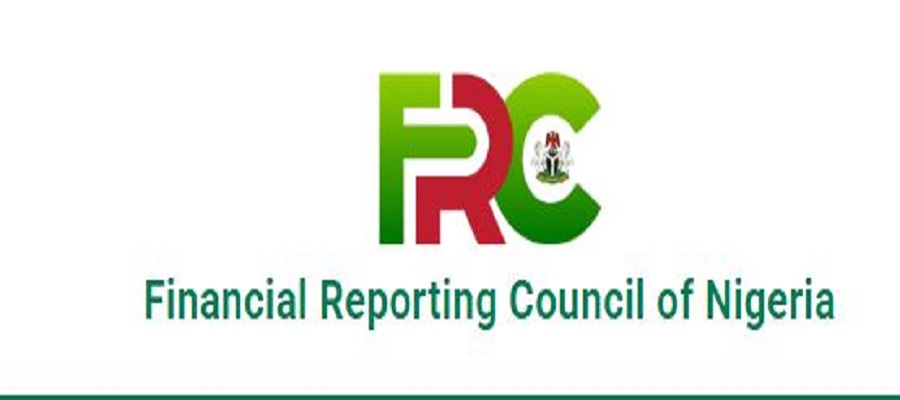General News
Cashless Society: Is Nigeria Winning

By Adeniyi Ogunfowoke
Technology is forcing both developed and emerging economies to innovate. The cashless society is one such innovation.
Cashless society according to Wikipedia describes an economic state whereby financial transactions are not conducted with money in the form of physical banknotes or coins, but rather through the transfer of digital information (usually an electronic representation of money) between the transacting parties.
The Beginning of the Cashless Society Drive
In Nigeria, the cashless society drive began in 2012. In order to limit the liquidity in circulation, the Central Bank of Nigeria (CBN) says that cash-based transactions should not exceed N500,000 for Individuals and N3,000,000 for Corporate bodies. The CBN added: “Our economy uses too much cash for transactions for goods and services, especially for buying and selling. This is not how it is done in other progressive countries of the world where there are other payment options such as, Debit and Credit Cards, Bank Transfers, Bank Direct Debits, Automated Teller Machines ( ATMs), and even Mobile Money. These achievements have been brought about by the changing needs of their people, competition among banks, and other companies, including changes in technology. Our major focus is to increase the volume of all available payments instruments in Nigeria.”
The Phase 1 of the scheme took off in Lagos on January 1, 2012, while additional states, namely Abia, Anambra, Kano, Ogun and Rivers States, as well as Abuja, were involved in Phase 2, which commenced on October 1, 2013. Phase 3 which is the final phase of the policy’s implementation commenced in the remaining 30 states of the federation on July 1st.
In other words, the cashless society has been managed and implemented for six years now. Six years down the line, is the Central Bank of Nigeria winning the cashless society war?
Is Nigeria Winning the Cashless Society War?
Despite the fact that Nigerians struggle to accept change, a good number of them, especially in the urban and semi-urban areas have wholeheartedly embraced the cashless society scheme. This is probably because they have no choice. You can say that the country is winning the cashless society war in urban areas.
Currently, you will find an average Nigerian or a market woman with an ATM card. To offer this more credence, data from an e-payment channel report in a series from the NBS, produced in collaboration with the CBN, reveal that 457 million transactions valued at N32trn were recorded on the channels in Q1 2018 and the NBS data also show that 54 million PoS transactions were recorded in Q1 2018, representing increases of 13% q/q and 101% y/y.
Furthermore, with a smartphone, you can use either Unstructured Supplementary Service Data (USSD) or mobile app to perform banking transactions at any time of the day. Again, the NBS report reveals that mobile payments recorded 15 million transactions valued at N329bn (US$1.07bn) in Q1. The value of the transactions grew by just 21% y/y and accounted for only 3.3% of total electronic transactions.
Off the cashless society policy, a notable achievement is the rise of digital payment gateways. Some of them include Jumia Pay, and others.
Owned by Jumia, Nigeria’s No.1 shopping destination, Jumia Pay enables Nigerians to make secure online payments while shopping on Jumia platforms. The payment gateway uses state-of-the-art technology and procedures to protect your online transactions. Interestingly, you get guaranteed 5% cashback for using Jumia Pay.
By the same token and in line with the cashless society policy, millions of customers who shop on Jumia, or book hotel and flights, or order food from their favourite restaurants now enjoy the services of Jumia Pay. This is because they can now pay for their transactions using Jumia Pay.
In addition to this, customers will enjoy 5% off all their orders on Jumia. If you combine this with the amazing Black Friday discounts Jumia is offering, customers will definitely save a lot of money whenever they shop on the ecommerce platform. The key reason for doing this is to encourage Nigerians to settle transactions through the use of digital payments rather than via cash.
Unequivocally, the painstaking efforts of the CBN in implementing the cashless policy are truly paying off. However, there is quite a lot to that still needs to be done. Many in the rural areas are yet to be reached.
They largely still use cash that is not even kept in the bank. This means there are still millions of unbanked Nigerians out there. The cashless society campaign needs to be taken to their doorsteps. Importantly, the cashless society message should be available in local languages. Ultimately, the CBN has to take a look again at the fees banks charge customers. Understandably, banks need to cover their costs and expenses but it should not be at the expense of their customers.
Sweden is the most cashless society on the planet, with barely 1% of the value of all payments made using coins or notes last year. Nigeria is nowhere near Sweden. But we are on the march towards a cashless society. The country only needs to integrate more inhabitants of rural areas into the scheme, effectively regulate banks and fintechs and continue to push the cashless society campaign.
General News
NCS to Launch Electronic System for Cash Declarations at Airports

Nigeria Customs Service (NCS) is set to introduce an electronic declaration system to streamline and enhance compliance for travelers carrying cash into or out of Nigeria.

Speaking in an interview with the News Agency of Nigeria (NAN) in Abuja, Abdullahi Maiwada, NCS spokesperson, emphasized that the initiative aligns with efforts to strengthen Nigeria’s anti-money laundering framework and reinforce financial regulations.
“The Nigeria Customs Service (NCS) has announced the deployment of an Electronic-Currency (E-Currency) declaration form as part of its anti-money laundering measures for travelers carrying cash into and out of Nigeria,” NAN reported. The system will require travelers carrying amounts exceeding the legal threshold to declare them before arrival or departure.
Maiwada further explained the process, stating, “We have developed a system where, even before leaving your point of origin, you can scan a QR code, access the form, fill it out, and we will be able to see it from here.”
He noted that the initiative, set for rollout soon, will enhance monitoring and facilitate information sharing with relevant authorities.
Under the Anti-Money Laundering (Prevention and Prohibition) Act 2022 and the NCS Act 2023, travelers carrying over $10,000 (about N15.4 million) or its equivalent in negotiable instruments must declare the funds to Customs authorities.
To boost awareness, the NCS is working with airline operators to inform travelers through onboard announcements and plans to reinstate signage at airports and border points in English and French.
The move comes as part of broader efforts to tighten financial controls following a recent case at the Murtala Muhammed International Airport (MMIA), where Customs officials seized $578,000 from a passenger attempting to evade currency declaration regulations.
General News
Aquaterra Energy Secures Multi-million-dollar well Intervention Contract with Intrepid Energy in Nigeria

Aquaterra Energy, a leader in offshore engineering solutions, has secured a multi-million-dollar, multi-year contract with Intrepid Energy Limited (IEL) to deliver a bespoke subsea well intervention equipment package for a project in Nigeria.

Aquaterra Energy’s turnkey well access package will enable IEL to conduct intervention operations across multiple mature oil wells in the region, supporting enhanced reservoir production.
The contract includes the supply of a complete seabed-to-surface intervention system and package, spanning from the subsea tree to surface intervention equipment.
Key components include Aquaterra Energy’s TRT tieback tooling, which provides production bore and annular access, a lightweight well pressure control system, and an ISO 13628-7 qualified open water intervention riser with an integrated tensioning system. In addition to equipment provision, Aquaterra Energy will also deliver ongoing offshore engineering support throughout the project.
The 7- 3/8” lightweight well access solution, has been specifically engineered for deployment from jack-ups and lift boats. This innovative approach offers a cost-effective and operationally efficient alternative to floating vessels, reducing intervention costs while maintaining high safety and performance standards.
Andrew McDowell, Delivery Director at Aquaterra Energy comments: “Our expertise in offshore engineering allows us to develop tailored intervention solutions that address the operational challenges of subsea well access.
This system has been engineered for efficiency, ease of deployment, and safety, helping IEL optimise intervention activities across Nigeria while reducing costs. By delivering a complete, integrated package, we are simplifying complex operations and enabling operators to maximise production potential.”
Engr Seun Alonge, CEO at Intrepid Energy Limited adds: “Working with Aquaterra Energy marks a significant step forward for our intervention operations in Nigeria. Their specialised technology enhances our ability to execute intervention programmes efficiently, maximising performance across our assets.
By combining Aquaterra’s technical expertise with our deep understanding of the local operating environment, we’re confident this collaboration will enhance production outcomes and create lasting value for our operations in the region.”
The project is set to support intervention operations over multiple years, with Aquaterra Energy providing ongoing technical expertise, with a dedicated team of engineers providing ongoing service support throughout the project.
George Morrison, CEO at Aquaterra Energy: “Delivering reliable and efficient well access solutions for shallow water subsea operations is central to how we support offshore operators.
This collaboration with IEL reinforces our commitment to providing cutting-edge engineering solutions that enhance efficiency and reduce operational costs. With West Africa playing an important role in the global energy sector, we’re proud to continue supporting its offshore industry with our expertise and innovative technologies.”
General News
FG Halts Controversial FRC Dues amid Industry Outcry

Federal government has temporarily suspended the controversial annual dues imposed on public interest enterprises by the Financial Reporting Council (FRC) after fierce opposition from businesses.

Jumoke Oduwole, minister, Industry, Trade, and Investment, announced the decision during a Ministerial Consultative Meeting in Abuja on Wednesday.
The move follows mounting pressure from private sector groups, including the Nigeria Employers’ Consultative Association (NECA) and the Manufacturers Association of Nigeria (MAN), who slammed the Financial Reporting Council (Amendment) Act 2023 for burdening companies with excessive fees.
The Act mandates cumulative annual charges for non-listed entities and imposes a harsh 10% monthly penalty on unpaid dues, compounding until full payment, a provision that sparked widespread backlash.
At the meeting, major industry players like NECA, MAN, the Nigerian Association of Chambers of Commerce (NACCIMA), oil producers, and telecom operators warned that the fees would cripple businesses already struggling in a tough economy.
Oduwole clarified the suspension, stating, “The government has decided to direct the Financial Reporting Council to pause in the implementation of the new annual dues. You know that I am a lawyer, and a suspension request by the organised private sector would be in contravention of legislation duly passed by the National Assembly. A pause is an administrative process simply to review, in line with what we discussed today.”
She assured stakeholders that the halt would last no longer than 60 days, with a technical working group—including FRC officials and private sector representatives—set up to reassess the policy.
“We are a listening administration. The private sector has requested a range from three months to an indefinite suspension. We are not going to do that. So, at the most, 60 days is in my estimate. We are going to set up a technical working group comprised of the FRC and the organised private sector who have formally written in, and this will be reviewed,” Oduwole emphasized.

 News3 days ago
News3 days agoCourt Throws Out Falana’s Fraud Case against Ekeh, Zinox Boss and Others

 E-Financial3 days ago
E-Financial3 days agoHeritage Bank Depositors Seek National Assembly’s Help to Recover Trapped Funds

 Telecom2 days ago
Telecom2 days agoAgain, Labour Fumes, Threatens Shutdown of Telcos over Non-Implementation of 15 Percent Tariff Reduction

 Telecom3 days ago
Telecom3 days agoNokia Unwraps 5G Gateway for Home Internet

 News3 days ago
News3 days agoFG to Halt Solar Panel Imports, Pushes for Local Manufacturing

 News2 days ago
News2 days agoNNPC Ready to Go to Capital Market for IPO- CFIO

 E-Business2 days ago
E-Business2 days agoQNET Disassociates From Fraudulent Academy in Abuja, Supports EFCC Arrest

 News3 days ago
News3 days agoFG Receives N1Bn Grant from Airtel Africa to Boost 3MTT Programme



























